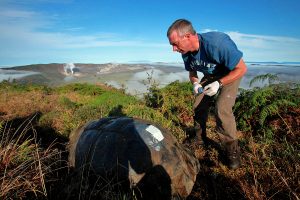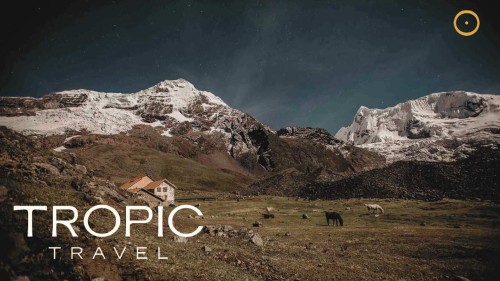Ecuador’s leading purveyor of extraordinary experiences, Tropic Journeys in Nature (Tropic) and the Charles Darwin Foundation, a highly respected scientific institution, are partnering to give small groups (up to 16 people) visiting the Galapagos Islands exclusive access to specialized knowledge that only the experienced Foundation’s scientists and staff can provide.

The Charles Darwin Foundation works tirelessly to preserve both the rich history and sustainability of the Galapagos Islands.
“These tours, we hope, will send our guests home with additional food for thought about how fragile the endangered world of the Galapagos is. Saying their last good-byes to our sea lions is great for photos. Thinking about and acting on these issues can impact our world,” explains Jascivan Carvalho, Founder and Director of Tropic (http://www.destinationecuador.com/).
The programs begin and end on Santa Cruz Island, the location of the Foundation’s Charles Darwin Research Station. One program, “The Legacy of Charles Darwin”, begins to penetrate the science and beauty that define this UNESCO World Heritage Site. A Foundation scientist will introduce this world before guests visit the tortoise-breeding center that provides a sample of this region’s biodiversity. The discussion lasts approximately 90 minutes. The cost is $225 per group and requires booking in advance.
In an extended program that goes beyond the basics, The Foundation and Tropic will host small groups on a visit to a habitat somewhere on Santa Cruz Island for exploring flora/fauna, vertebrates, invertebrates and marine life of their choosing. This program which is led by a Foundation scientist requires that participants bring their passion for knowledge and adventure in order to get the most of the curator’s expertise and wisdom. This is a unique opportunity in a unique location, where few non-scientists have gone before. The tour and discussion together are $1,115 with a maximum of eight per group and require booking in advance.
Also in tandem with the Foundation, Topic can arrange half-day field trips exclusive to groups of up to 16 participants. Three stops are made to different regions of Santa Cruz Island to underscore the importance of scientific studies being done here and how at-risk is this region’s sustainability. This is an opportunity to explore remote habitats and scenery that few have had the chance to see.
The first stop on the tour is the Scalesia Forest where visitors will see the toll that harmful agricultural activities and invasive wildlife have taken here, leaving the forest at only 1% of its 1915 original distribution. The rapid reduction of the Scalesia Forest is a result of the excessive logging in the early 20th century for the sake of agriculture. The devastation is so catastrophic that it has resulted in “an almost complete loss of an entire vegetation type.” (André Mauchamp and Rachel Atkinson, Galapagos Report 2009-2010).
The second stop is a trek to “Los Gemelos” or “The Twins”, identical craters formed during the creation of the island when a lava tunnel collapsed, leaving behind large crater-like holes. The ecosystem is again the focus. A scientist explains how a forest came to evolve in these holes. Scalesia pedunculata trees, affectionately known as “broccoli trees”, growing in these depressions provide habitat for orchids, mosses, lichens and many birds including Darwin’s finches. A stop at the National Park Greenhouse displaying conservation in action concludes this tour. The Greenhouse focuses on growing endemic and native plants that will be re-introduced into degrading ecosystems as part of the Foundation’s fight to save this world. The four-hour program is $670 per group, including round-trip private transportation.
Visitors and friends of the Galapagos are urged to support the work of the Charles Darwin Foundation through tax deductible donations. Visit: http://www.darwinfoundation.org/en/get-involved/donate/
